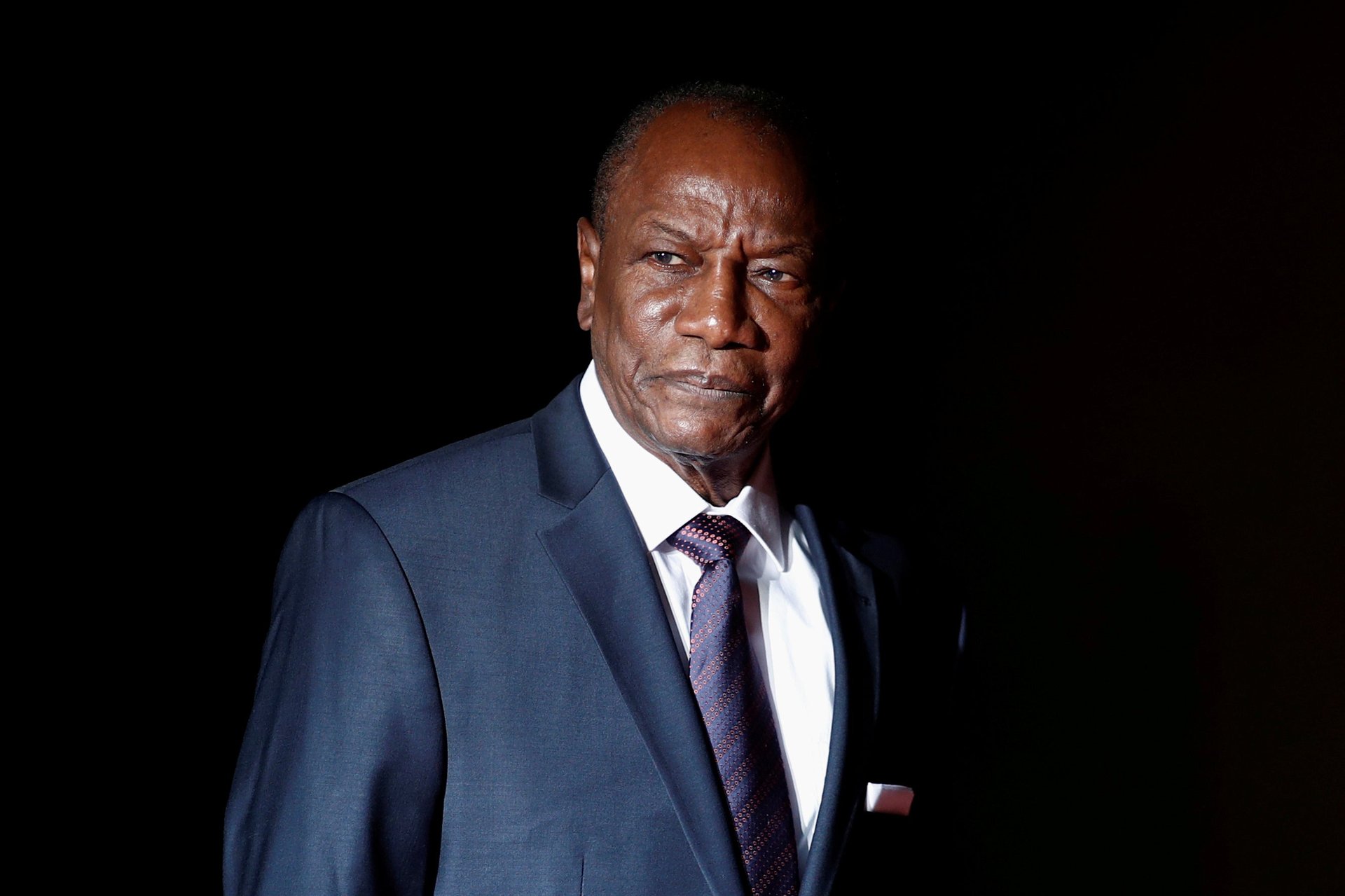Guinea readies for a controversial referendum amid talk of an internet shutdown
Confusion over possible disruptions to Guinea’s broadband and telephone network has sparked anger as the country gears up for a controversial referendum this weekend (Mar. 22) that could allow president Alpha Condé to extend his time in office by another 12 years.


Confusion over possible disruptions to Guinea’s broadband and telephone network has sparked anger as the country gears up for a controversial referendum this weekend (Mar. 22) that could allow president Alpha Condé to extend his time in office by another 12 years.
GUILAB, the infrastructure company that manages the telecom capacity allocated to Guinea on the Africa Coast Europe submarine cable (ACE) system, said this week that planned upgrades to the ACE network would take place between Saturday (Mar. 21) and Sunday (Mar. 22) and “cause the interruption of international communications (telephone calls & Internet) from all connected countries on this network,” which includes Guinea and 22 other countries.
The timing of this announcement, which was first reported by local outlets like Guinée 114 and Mosaïque Guinée, raised suspicions the government was trying to interfere with the rollout of a referendum on changes to Guinea’s constitution. Critics say the changes could allow Condé, 82, who has been president since 2010, to govern for two more six-year terms. Condé has not confirmed whether he would run again, though he said in an interview, “my party will decide.”

When asked whether disruptions to the telecom network could affect the rollout of the vote, Oumar Koulibaly, CEO of GUILAB, said the timing of the maintenance on the network was “a coincidence.” But in response to the backlash, the company quickly backtracked, saying in a statement late Friday (Mar. 20) that the upgrade work would be delayed to April.
There is precedent in African leaders disrupting communication networks to control the flow of information in their countries. In fact, internet shutdowns rose by 32% in 2019 compared to the previous year. In most cases, under the guise of security, governments simply want to hamper opposition leaders from organizing protests or riling up citizens about their policy or political decisions. A fair number of internet shutdowns or social media blocks also happen around elections.
Referendum vs elections
The Guinean referendum, which was announced in October, proposes language for a new constitution. Condé, who is Guinea’s first democratically-elected president, says these changes are sorely-needed, because the current constitution was drafted during the country’s military dictatorship.
The new language contains progressive measures to promote gender equality in government and ban female genital mutilation and underage marriage. But it would also extend the length of a presidential term from five to six years, and limit presidential terms to two. But critics fear this would essentially reset Condé’s time in office to zero, allowing him to run for two more six-year terms when his second term runs out at the end of this year.
Oppositions groups said they will boycott the vote, and widespread anti-government demonstrations in the Guinean capital of Conakry have led to the death of at least 30 people including one police officer.
The referendum was originally scheduled for Feb. 29, but the government delayed it, citing international concerns raised by bodies like the Organisation Internationale de la Francophonie, a group representing French-speaking nations, about the integrity of the electoral register. The referendum will be held alongside legislative elections that were originally scheduled for Feb. 16.
Sign up to the Quartz Africa Weekly Brief here for news and analysis on African business, tech and innovation in your inbox